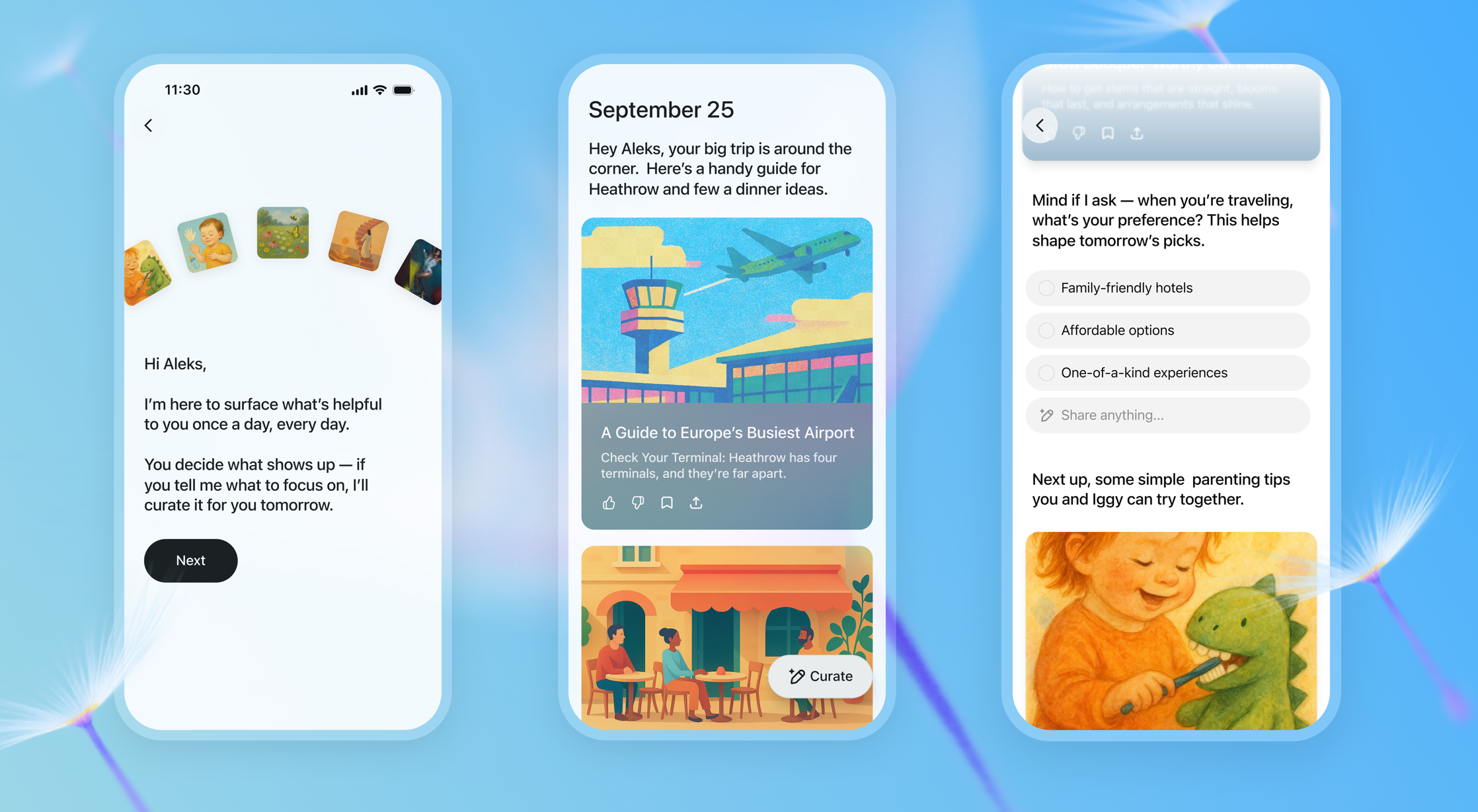OpenAI's new Pulse feature lets ChatGPT start the conversation

OpenAI is testing a new feature called Pulse that aims to make ChatGPT a more proactive assistant. Instead of waiting for questions, ChatGPT now pulls in information on its own and delivers daily updates.
Once a day, Pulse pulls together a set of personalized updates based on your usage history. ChatGPT scans your past chats, saved feedback, and any linked apps like Google Calendar or Gmail overnight to find relevant info. The next day, you get a set of visual cards with updates you can skim, open, or save for later. The idea is to give you useful information before you even ask for it, OpenAI says.
Right now, Pulse is only available as a preview for ChatGPT Pro users on the mobile app
ChatGPT as a proactive assistant
OpenAI describes Pulse as the first step toward making ChatGPT more like an autonomous agent that acts on its own, not just when you prompt it. These daily updates can include anything from recipe ideas and travel plans to next steps for bigger goals like a new workout routine.
You can steer Pulse with the "Curate" tool, setting topics for upcoming days - for example, event tips for the weekend or updates on specific interests. Each card can be rated with a thumbs up or down, and you can review or delete your feedback at any time.
OpenAI says the more you share about your interests, the better Pulse gets. Early tests with students in the "ChatGPT Lab" show that the benefits increase as you add more details. In one case, after a chat about planning a trip to Taiwan, a user got not only calendar reminders but also train schedules they hadn't even searched for.
If you connect external services like Gmail or Google Calendar, Pulse can remind you about birthdays, suggest restaurants for your trip, or help outline a meeting. But giving ChatGPT access to your personal accounts comes with risks (the same holds for Google Gemini and similar tools). Studies have repeatedly shown that apps built on large language models are still vulnerable to often surprisingly simple cyberattacks.
AI News Without the Hype – Curated by Humans
As a THE DECODER subscriber, you get ad-free reading, our weekly AI newsletter, the exclusive "AI Radar" Frontier Report 6× per year, access to comments, and our complete archive.
Subscribe nowAI news without the hype
Curated by humans.
- Over 20 percent launch discount.
- Read without distractions – no Google ads.
- Access to comments and community discussions.
- Weekly AI newsletter.
- 6 times a year: “AI Radar” – deep dives on key AI topics.
- Up to 25 % off on KI Pro online events.
- Access to our full ten-year archive.
- Get the latest AI news from The Decoder.